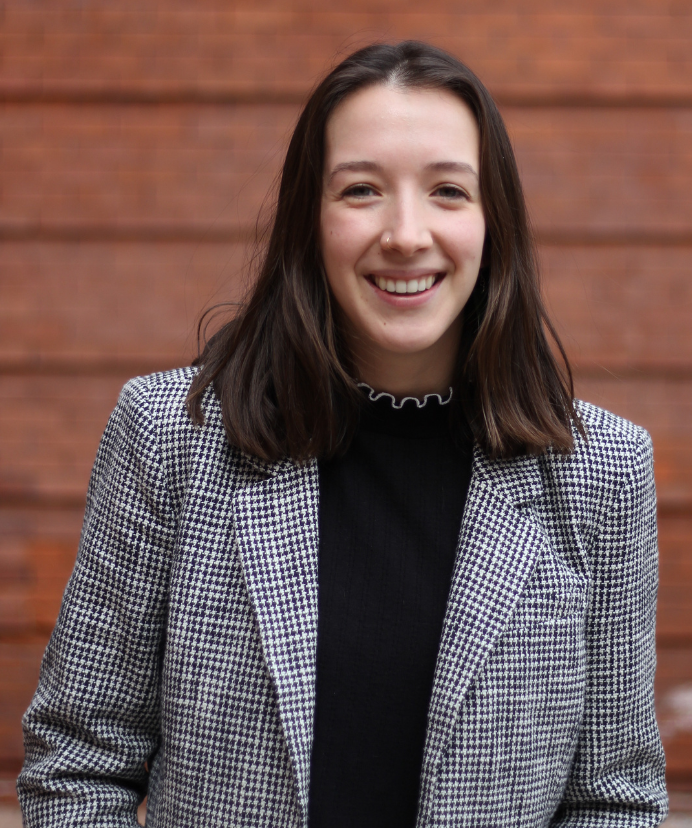Lisa Bero
Lisa Bero is chief scientist at the Center for Bioethics and Humanities at the University of Colorado Anschutz, as well as a professor of medicine and public health. She is internationally recognized for studying commercial determinants of health, focusing on tobacco control, pharmaceutical policy, and public health.

Read Time: 5 minutes
Published:
Lisa Bero is chief scientist at the Center for Bioethics and Humanities at the University of Colorado Anschutz, as well as a professor of medicine and public health. She is internationally recognized for studying commercial determinants of health, focusing on tobacco control, pharmaceutical policy, and public health.
Public Health Post: What are commercial determinants of health, and where does your work fit in?
Lisa Bero: The commercial determinants of health are, broadly speaking, those activities of the private sector that affect the health of populations. These can be direct, such as marketing, or more distal, like industry lobbying and political campaigns. Commercial determinants of health also encompass industry funding of unreliable or misleading research aimed at generating doubt about product harms. This is where my work fits in. I am interested in research influenced by corporate funding that is performed to show that products are not harmful when they really are, or that products are beneficial when they’re really not.
What are the methods that these industry actors use to influence public health research?
It’s important to think about research as a cycle, and corporations can introduce bias into each part of this cycle. The first step is framing a research question, which corporate funders can easily influence. There is also the design and conduct of the study. A study may be well designed, but corporate funders can influence how the study is conducted behind the scenes. The last part of the cycle is whether the study gets published or not and if it is published in full. Corporations can shape entire areas of research by pushing out publications that might favor particular products or suppress publications that show product harm. For example, the tobacco industry pumped out data about other aspects of indoor air to shift the focus away from the harms of second-hand smoke. Once the cycle is impacted, we’re in bad shape because the research questions of future studies are impacted, and we’re left without reliable evidence to inform policy.
How do you determine if a study is biased by corporations or industry actors?
Our team conducts meta-research, where we look at entire bodies of evidence on particular topics. We compare industry-sponsored studies to non-industry-sponsored studies to see if the results or conclusions differ. By controlling for all other factors, we can then determine if a study’s sponsorship is associated with the direction of the outcome. Obviously, biased outcomes tend to favor the sponsor’s product.
We are also interested in how industry sponsorship biases research. Internal industry documents released by lawsuits or obtained from regulatory agencies, like OSHA, where companies were required to produce data on a research question can reveal how these questions have been manipulated. These documents are more comprehensive than what is published in the literature, giving us better insight into the methods used by industry sponsors to influence public perception. We also interview researchers who have published papers claiming that they weren’t influenced by any sponsor. Sometimes they will admit that their sponsor did their statistical analysis or influenced their research question in some way. It’s surprising.
What health outcomes or disparities are caused by this kind of bias?
In addition to tobacco research, which is really the classic example, companies that make harmful chemicals, like perfluroalkyl and polyfluroalkyl substances (PFAS) used in products like non-stick cookware and water-repellant clothing, collected data showing that these chemicals last in the environment for hundreds of years. They held their findings internally without informing the public about the serious long-term risks they discovered.
In the pharmaceutical industry, companies often push out data that exaggerates the benefits of a particular medication. We have found many pharmaceutical studies that are done purely for marketing purposes rather than to determine any therapeutic advantage.
What solutions have been implemented, and how effective have they been in practice?
I divide solutions into two categories: transparency and independence. We have made huge strides in transparency, and publications are now more likely to require funding source disclosure. Corporate funding may make reviewers scrutinize research more closely, but the bottom line is that transparency doesn’t eliminate bias. We need research to be independent from sponsors’ influence.
To achieve independence, it is essential to have a contract ensuring researchers can publish their work without review by the industry sponsor. But we have interviewed researchers with these contracts, and they still face pressure from sponsors. Some independence models push companies to join a funding consortium so that researchers are not beholden to one company. This hasn’t been too successful because most companies would rather be the sole funder and maintain control of the research. Some organizations don’t allow their faculty to accept money from certain sponsors with poor track records in funding biased research. For example, when I worked at the Charles Perkins Centre and we were doing nutrition-related work, we would not accept funding from Nestle or Coca-Cola.
What needs to be done to better address research bias by corporate sponsors?
We need to make people more skeptical about industry sponsorship of research when they see it. We need public outrage when dangerous corporate influence is discovered. I still meet researchers who are incredibly naive about working with industry partners, who are surprised when somebody tries to stop them from publishing. I think, “Wow, where have you been the last 20 years?”
Bero recently spoke about her work and the commercial determinants of health at a Public Health Conversation hosted by Boston University School of Public Health. View the recording here.
Photo provided



